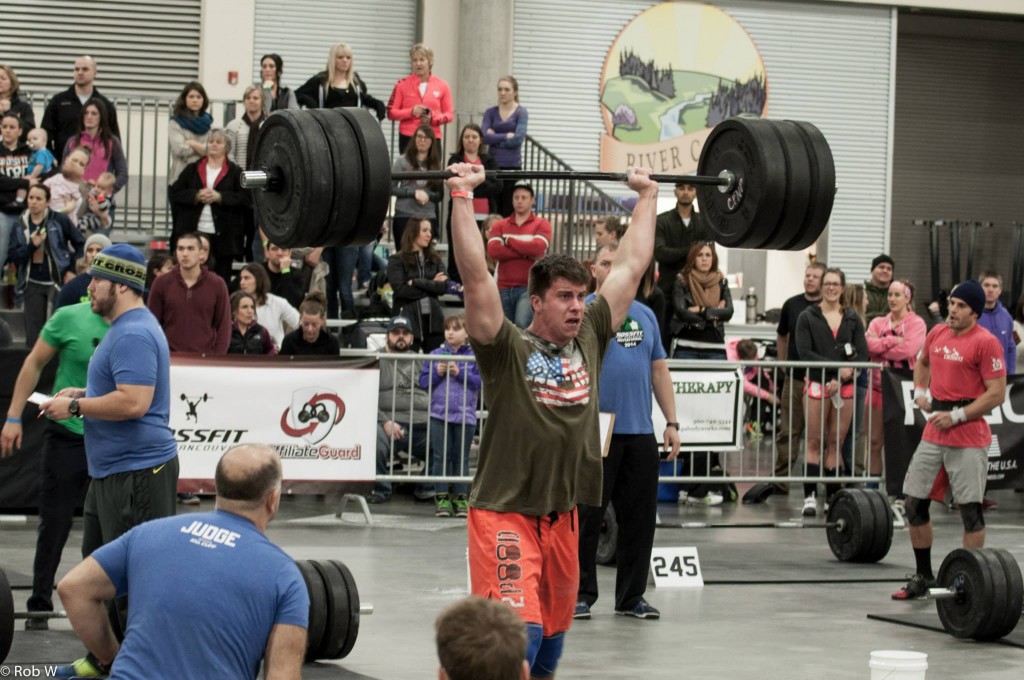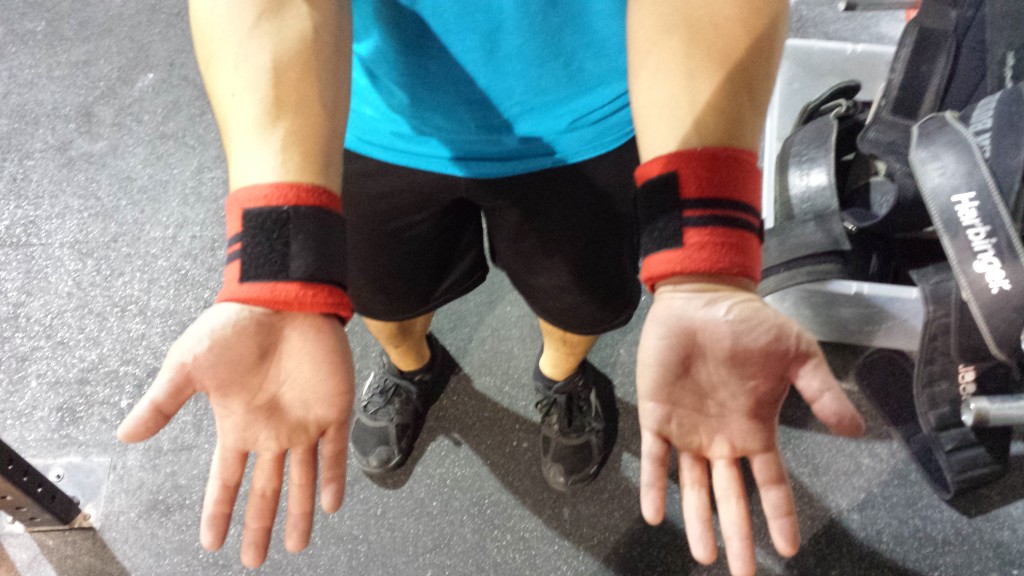Written By Calvin Sun

There is no shortage of accessories for CrossFit athletes today. Wrist wraps, wraps, straps, belts, knee sleeves, and lifting shoes are some of the most common pieces of gear you’ll find on any functional fitness athlete. In my opinion, the wrist wrap is one of the most misused (and overused) pieces of support gear.
The purpose of a wrist wrap is to provide support to the wrist joint during heavy or max effort lifts in pressing movements and overhead lifts. During these movements, the wrist can be pulled into excessive extension under load and result in compromised mechanics, possible injury, and failed lifts. Wrist wraps are certainly worth having for an athlete, but I notice many don’t use them correctly. Here are a few tips to help you get the most out of your training.
1. Warm-Up Without Your Wrist Wraps
You don’t need to wrap your wrists to move 60% of your 1-RM press. I usually advise my athletes to wear wrist wraps only on training days where we are working at or near max loads. Becoming dependent on wrist wraps all the time tends to limit strength development in your wrist flexors and extensors. Take a look around and you’ll notice that some of the strongest athletes in our gym rarely wear wrist wraps.

2. Don’t Tie Your Wrist Wraps Too Low
Remember that the purpose of a wrist wrap is to support your wrist joint. If the wrap sits below your wrist joint, you have effectively turned your wrist wrap into a forearm bracelet that provides no support. Make sure you tie your wrap so that it covers the wrist joint enough to create support and prevent excessive wrist extension.

3. Use The Right Kind of Wrap
There are two primary kinds of wraps on the market: cotton wraps that are thinner and more flexible (ex: Strength Wraps) and the thicker, Velcro-bound powerlifting-style wraps that provide more wrist support. If you are trying to max out a movement such as a bench press or shoulder press, I would advise using the thicker wraps. If you are going for a max in your clean and jerk or snatch, the thinner wraps might be a better choice as they will give you a little more range of motion at the wrist. You’ll need to be able to extend your wrist to receive a clean and the wrist will be slightly extended in the finish position of both the snatch and jerk.
4. You Don’t Need To Wear Wraps For Most Gymnastics Movements
Unless you plan on putting on a leotard and competing in actual gymnastics events like the vault or pommel horse, you probably don’t need to wear wrist wraps for bodyweight exercises like ring dips, handstand push-ups, and pull-ups. An exception might be training or competing with a wrist injury. Also, some athletes may want to have something on their wrists to protect their skin when performing high-reps of muscle-ups with a false grip. The point here is that you shouldn’t need wrist support for most of the gymnastics movements we perform in CrossFit.
5. Don’t Use Wrist Wraps To Hide Mobility And Flexibility Issues
A common excuse for wearing wrist wraps is pain or discomfort when the wrist is in extension such as the receiving position of a clean or when performing front squats. More often than not, an athlete who has discomfort in their wrist when cleaning or front squatting probably has a poor rack position due to poor mobility in their upper body. Poor thoracic extension, a lack of shoulder flexion and external rotation, and wrist flexibility can all play a role in a poor rack position. Wrist wraps don’t make you more flexible. Read my “How To Get A Better Rack” post and Nichole’s “Tips For Improved Wrist Mobility” for some ideas to improve.
If you’re an athlete looking to improve your CrossFit skills, check out our Invictus Gymnastics Program. This program will help supplement your current training, improve your current form, and help you avoid injury. Learn more about the Invictus Gymnastics Program here.
xnxx-xxx-sex-videos.com
I used wrist straps too low and injured my wrist.
I think I used wrist straps too low and injured my wrist. I was using them for lat pulldowns. I am a professional pianist and was trying to avoid too much “pulling” with my fingers/hands. Could I have fractured a bone?
No and don’t use wraps, use straps for pulling motion it’s different purposes, although you probably shouldn’t use either for lat pull downs I don’t think you’re getting the type of support.you think you need
something that should be mentioned, powerlifting wrist wraps would worn much higher (on the thumb joint)
There’s some good info on here Calvin. I would add that using wrist wraps to warm up is not necessarily a bad thing since a large amount of athletes who use wrist wraps have sustained wrists injuries and even at light weight you can do damage to healing tissues. Which brings me to the next point. Some of the gymnastic movements are very stressful on the wrist and often times you may not need wrist wraps until there is a slip or an accident and then that’s the difference between a serious injury that takes months to heal and a… Read more »
I think I used wrist straps too low and injured my wrist. I was using them for lat pulldowns. I am a professional pianist and was trying to avoid too much “pulling” with my fingers/hands. Could I have fractured a bone?
Do they help while you’re working on getting more mobility in th rack position? As to not hurt yourself?
Thanks for providing the tips and great guide of using wrist wraps!
If you have had previous wrist injuries or recently exposed them to overuse, wrist wraps can help stabilize them while they recover. However, in most scenarios, this should be used sparingly and only as long as they’re needed. In the meantime, rehab work should be done every day with an empty bar or light weights to strengthen the wrists.